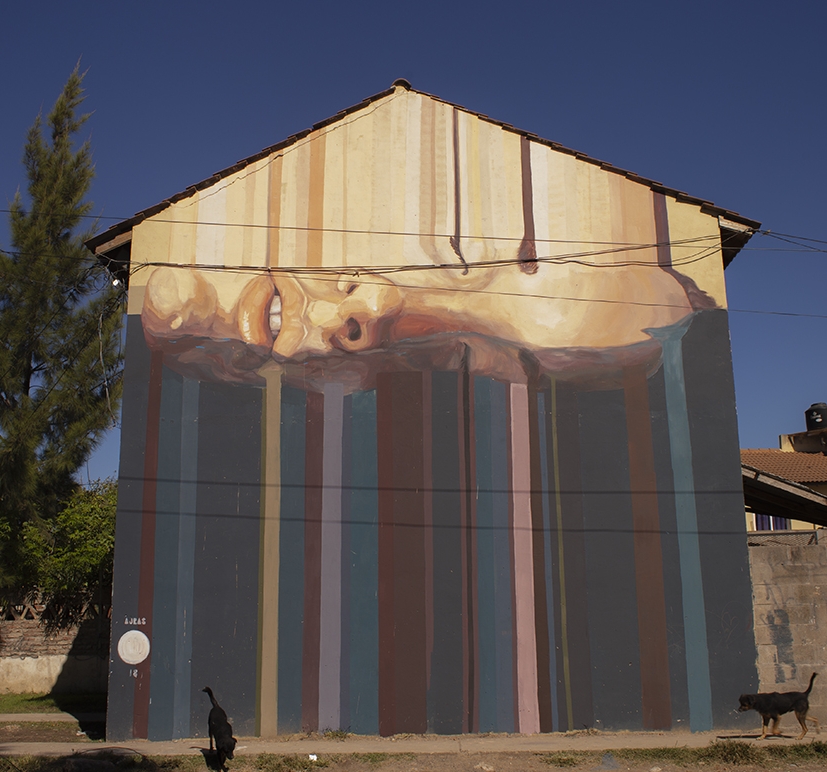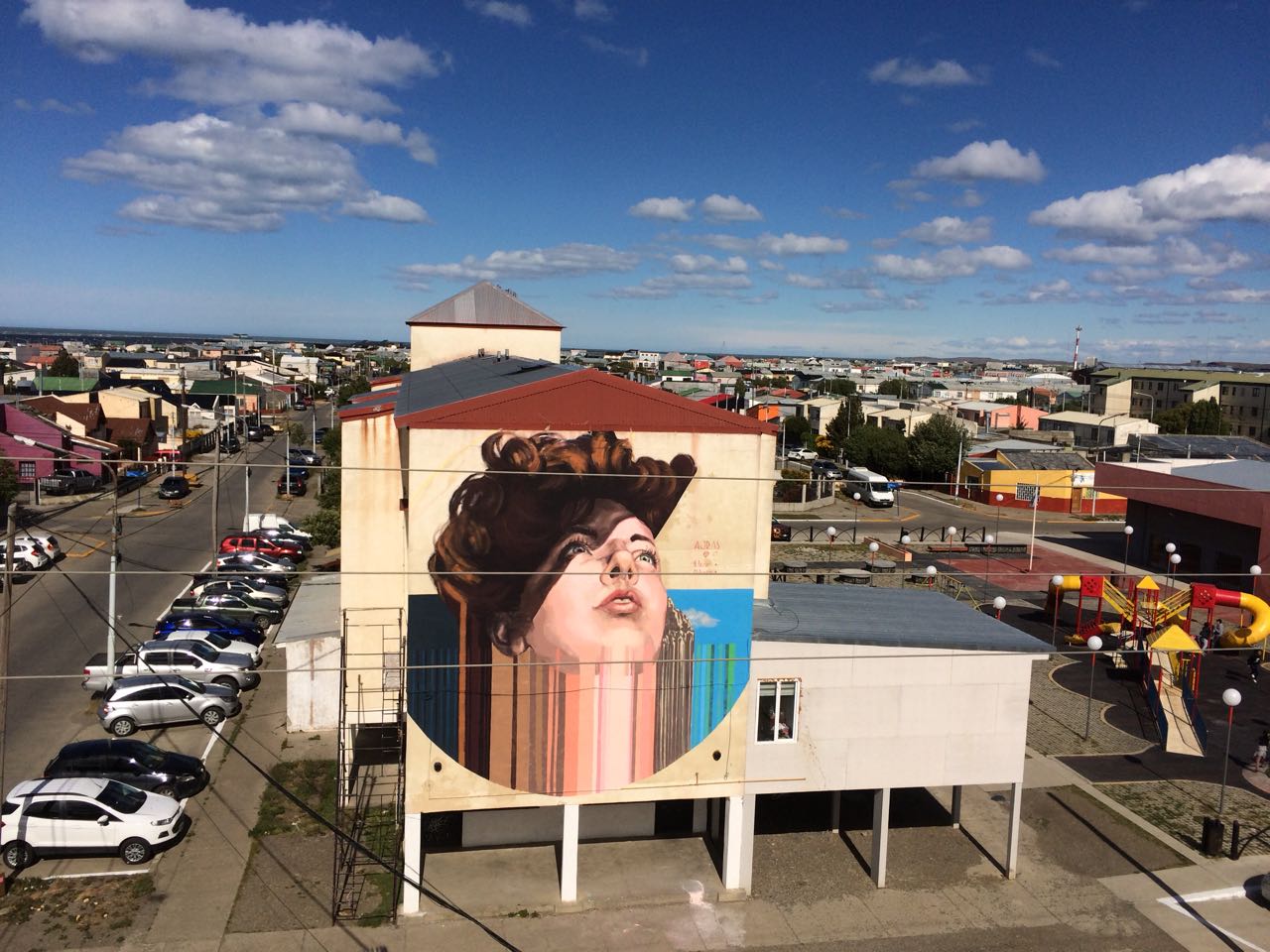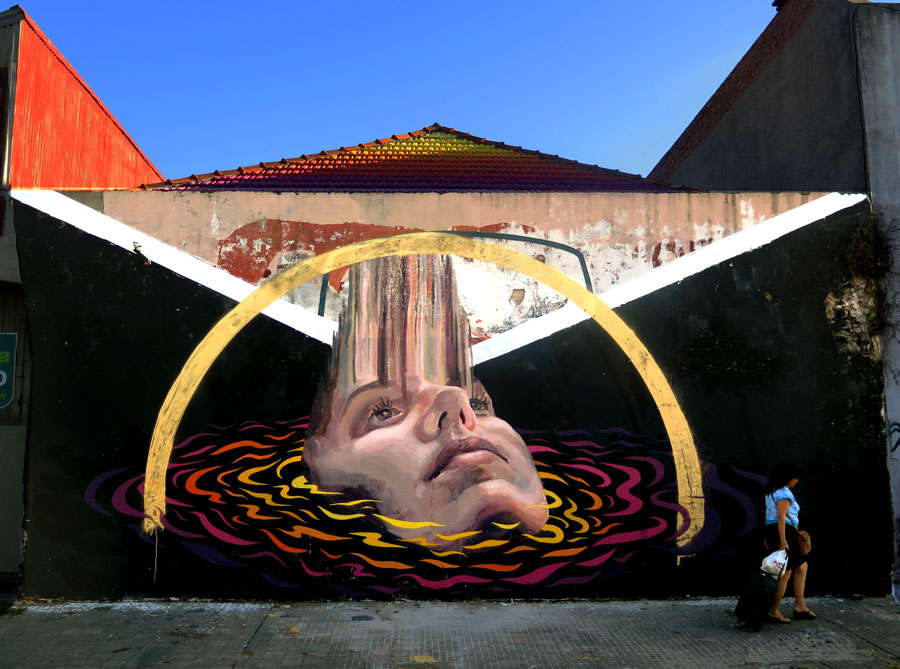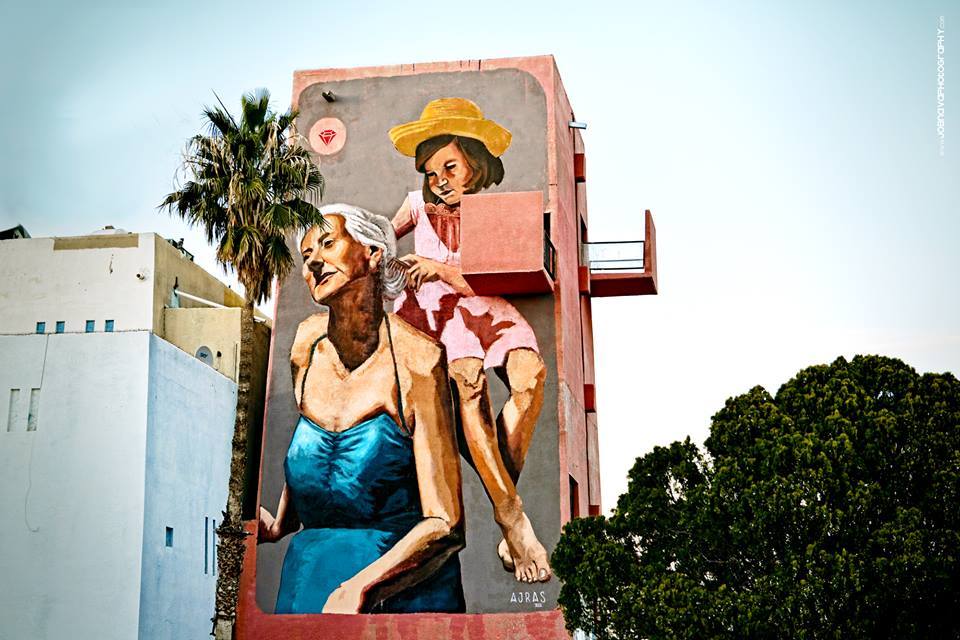interview | mariela ajras





buenos-aires based muralist mariela ajras, known for her work exploring the psychological phenomena surrounding memory and time distortion, is bound for her first west coast tour. we interviewed her to learn more about how her background in behavioral studies influences her work.
How would you describe your relationship with art?
My relationship with art is always evolving. It’s based on a strong attraction and necessary for my survival. I find myself reaching my own limits and passing them all the time—even when I think I’ve reached the end point, there’s always something else just beyond the horizon. Art is an expanding territory. Art is like someone I really fancy and want around so I invest a lot in it, I take care of it and try to be disciplined so I can make it last.
When did you first begin painting? Who did you learn from?
I always drew as a child. When I couldn't draw, I would ask adults to draw things for me. Drawings were gifts I gave to those I cared about. When I was 5, my mother decided to send me to a "taller de dibujo y cerámica" where I learnt to model in clay and draw the images of my imagination. I spent many years in this atelier with a female master who became my teacher when I returned at age 18. She and other private ateliers taught me painting techniques and, mostly, contemplation and the spirituality of art. I started the School of Art but wasn't interested in having to go through such a long (10 years at that time in Argentina) period of time in an institution, so I stuck with Psychology at the University of Buenos Aires. After I graduated, I started painting murals and never stopped.
What do you find most interesting about the art world?
Its capacity to affect, provoke, trigger feelings, open minds and allow other possible worlds.
What has been the biggest source of inspiration for your work?
Injustice. In murals, I started focusing my work on the female figure, gender inequality, the myth of romantic love, etc. Memory and time distortion have always been topics that interest me. I paint about memories that may have never existed, as all memories are fictional versions of what really occurred, and most of them disappear from our recollection. What happens when something or someone is forgotten? Does it stop existing? Even in our own personal history, where do those moments go if we don't remember them… did they even happen? There's a sense of injustice in oblivion. I am very compelled to paint, write and think about this. Memory is a social exercise, no doubt.
Is there a particular message you want your work to communicate?
I'm not a big fan of speeches. I always worry and distrust when someone wants to communicate a message as a command, I feel it can become totalitarian. In Spanish we say "bajar linea", which means to show the line in which you should look at, think, talk, walk... that's never an opportunity to create anything. I feel it can capture instead of allowing new thoughts. SO, regarding the question, I don't think I want to induce any message, I feel images are strong enough because they are truly a surface for projections. People inject images with a meaning of their if the images are powerful enough. Context provides the words, but in the end we are all experiencing and suffering from similar injustices. I create images that are powerful and provoking to me and hopefully they resonate with others. Meaning is something we produce together. Also, I feel that the language of images, (especially in the public space), takes a strong political stand. The ability to communicate without words, but with images that propose feelings and not consumerist commands is an alternative to facilitate an aesthetic and sensorial dimension—something we definitely lack in our daily lives.
Can you describe your mental and emotional process when it comes to creating something new?
New ideas are very capricious. There will be a certain light, a certain temperature or some facial feature I like and I’ll start painting it… and then the concepts start unravelling. Sometimes it's the opposite—I decide I want to explore an idea and come up with every picture beforehand and once I have them all, I start painting (for an exhibition, for example). It’s not a very mature way of working. It’s a goal of mine to be more disciplined, but it’s true, inspiration strikes when you’re working.
Have you seen your personal life transform in accordance with your creations? If so, in what way?
I have used "my creations" as expiatory goats. It's where I place all my frustrations and questions. I use painting to better understand my experiences and find meaning. For example, last year I was feeling very sad and a bit hopeless, so I designed an exhibition around this uneasiness. After I finished, I realized I was able to transform this sadness into being productive and it after that it was no longer in me. I put it outside of me to make things, and the energy that was feeding my sadness now fed my creations. I stopped feeling sad. I’m not sure if this is a formula for happiness, but it did help me.
What is your happiest memory?
I don't remember precisely, but it definitely involves being at the beach, looking at the ocean and eating ice cream while the sun sets.
What would you like to learn more about?
Painting, postmodern philosophy, the craft of filmmaking, astrology. I also enjoy producing and cultural managing.
What three things do you feel are most important to you?
The people I love, getting better as a painter and the bravery to embrace freedom and love and time.
If you could be anywhere in the world, where would you be?
I'd love to live in a place by the sea, where I could always hear or see the ocean.
interview by carter
